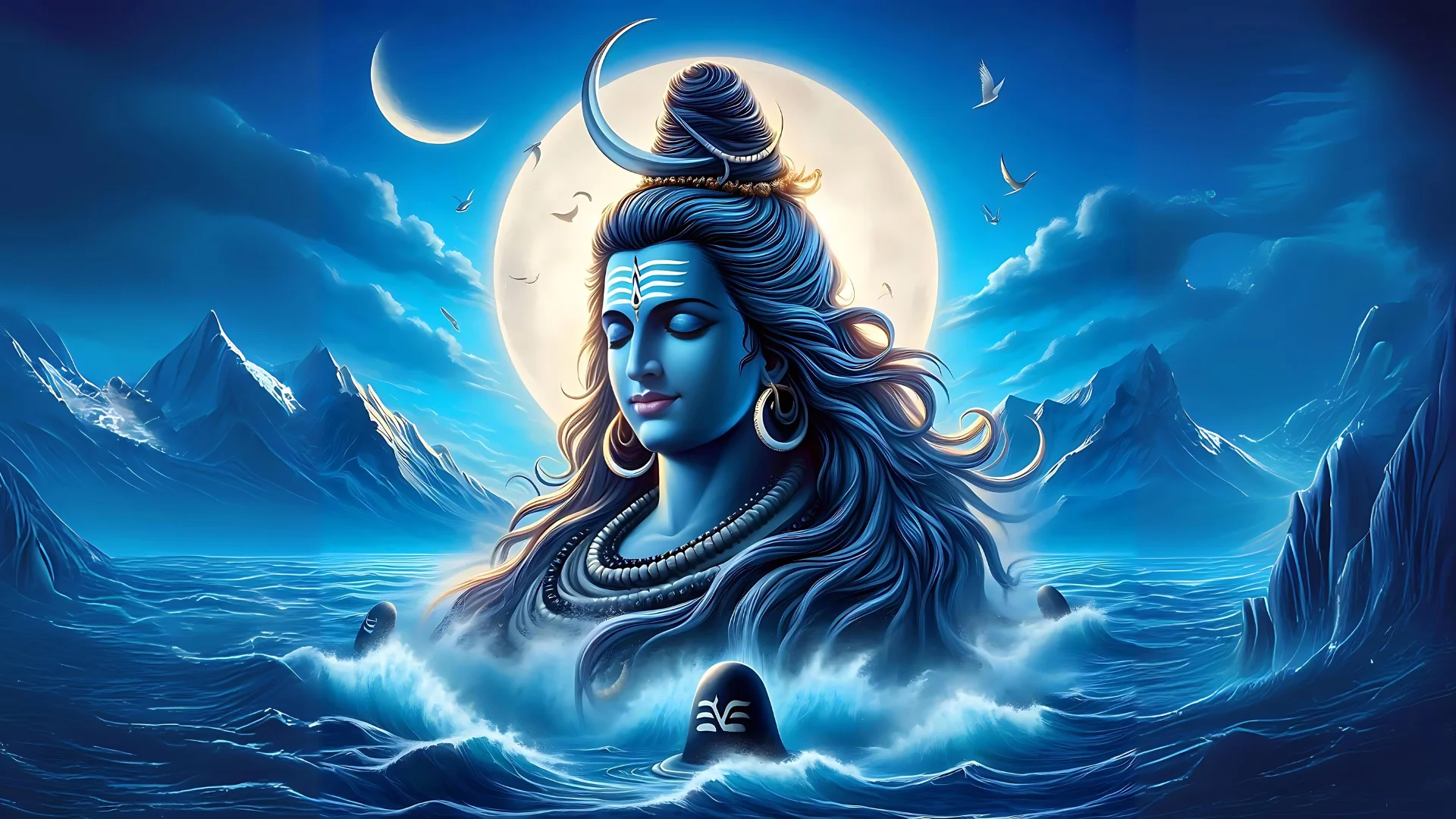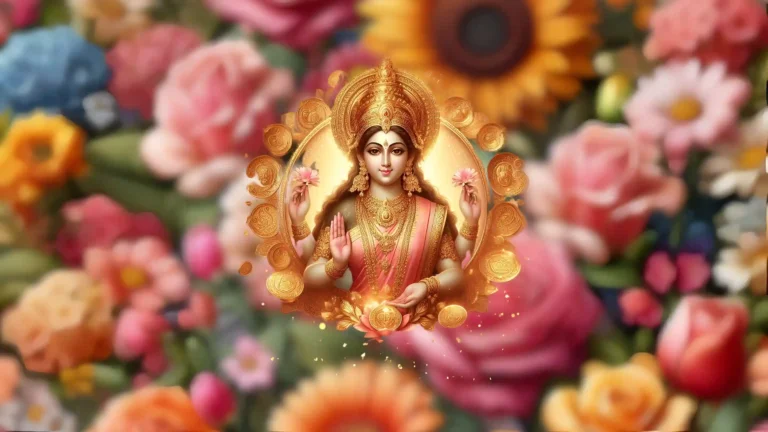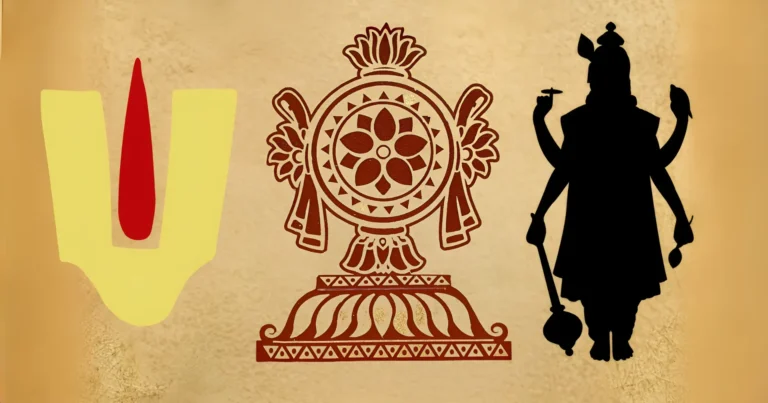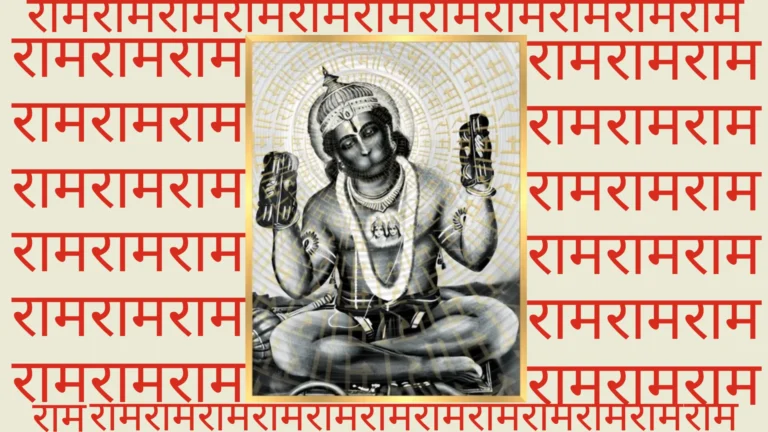Please Like the Blog and Share it for Maximum Reach
Table of Contents
The Story of the Mahimna Stotram and the Gandharva
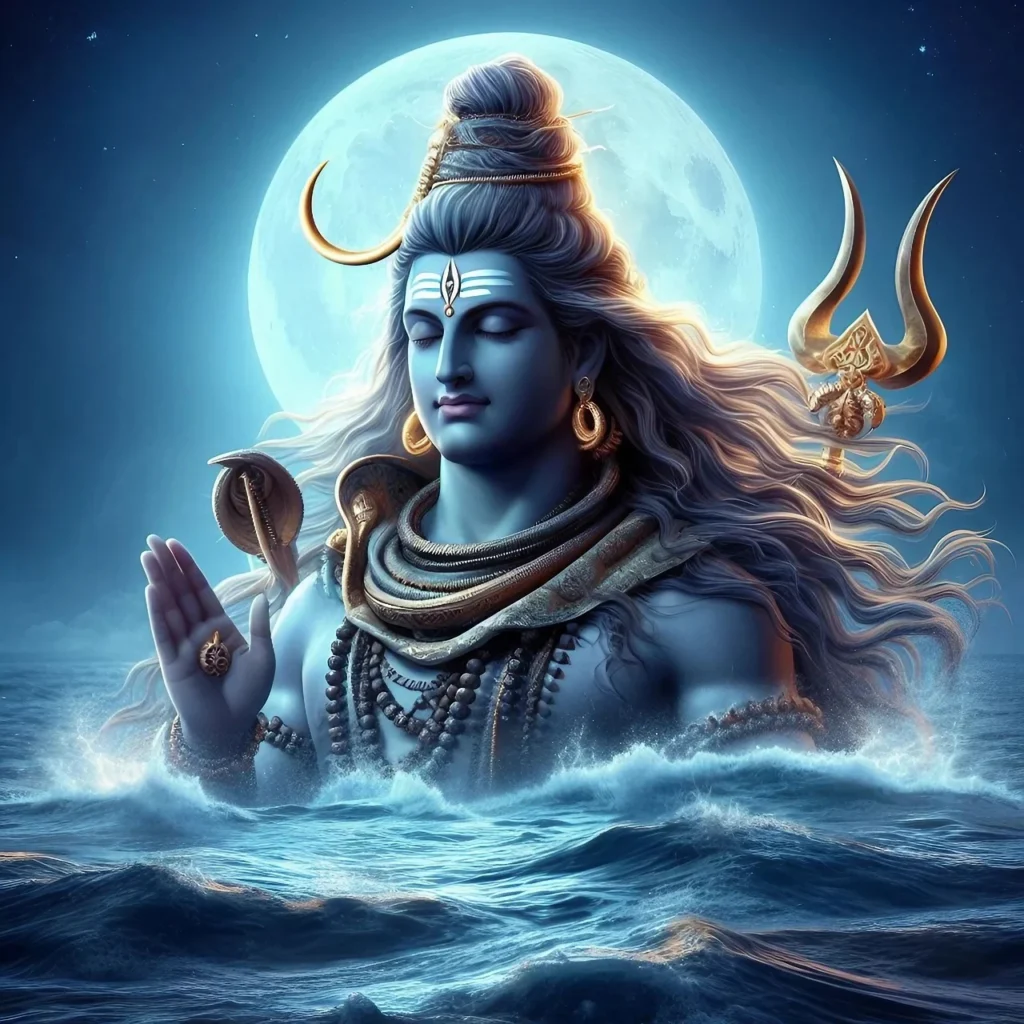
The Shiva Mahimna Stotram is very dear to Lord Shiva. Shiva Mahimna literally means the greatness of Mahadev. The story behind the Shiva Mahimna Stotram is very interesting.
Once, there lived a king named Chitraratha. He was a pious soul and an ardent devotee of Lord Shiva. He built a royal garden for offering flowers to the Lord. The garden housed extraordinary flowers. Fascinated by this garden, a Gandharva named Pushpadanta stole the flowers.
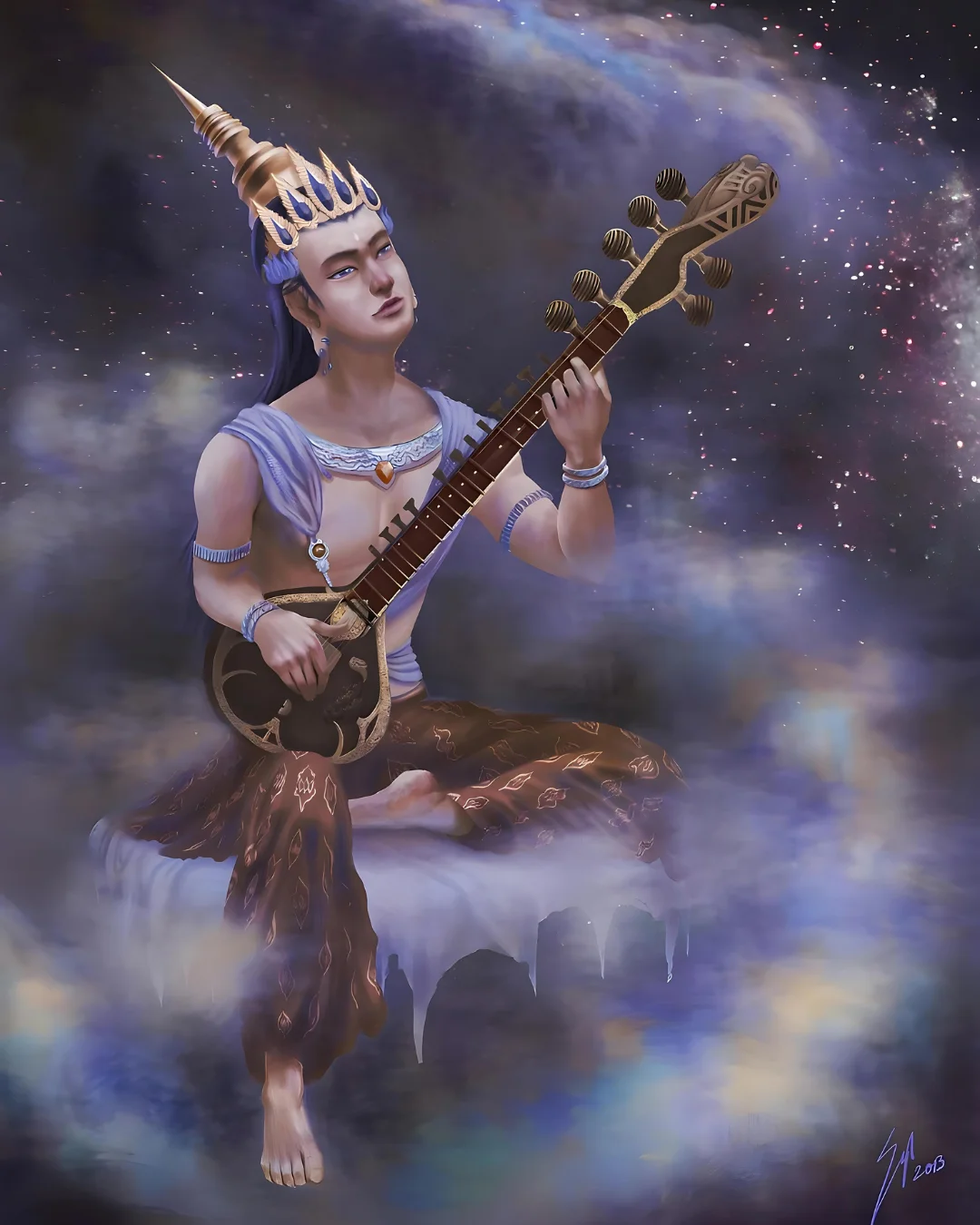
One fine day, the king could not perform his worship because he could not offer the flowers of his choice. The king realized that there was a thief in his backyard. The Gandharva used his mystical powers of invisibility whereby he stole the flowers every single day.
The Flowers take away the Gandharvas Powers
The mystery of the missing flowers was unsolvable. Finally, an idea struck the king. He laid a trap of Shiva Nirmaalya on the ground comprising Bilva leaves and flowers offered to Lord Shiva. Nirmalya means the remains of the flowers already offered to the Lord on previous days. Accidentally, the Gandharva stepped on it and lost all his magical powers.
This is when the Gandharva sang the Shiva Mahimna Stotram for the very first time. Pushpadanta was a Shaiva himself. The Lord was so pleased that he restored his powers.
7/8 Questions from Sanatana Dharma
The scores generated in this Quiz may or may not be absolute. There may be right or wrong answers to each Question. A percentage towards 100 indicates that you are more aligned to the overall subject matter.
Benefits of Chanting the Shiva Stotram
Now I shall state the benefits of chanting Shiva Mahimna Stotram.
Before I reveal the benefits let me caution you that if you are behind the benefits, you cannot have them. It will come to you automatically when you have deep faith, surrender, and Love for the Great Lord Mahadeva.
For devotees of the above category, Lord Shiva provides the chanter with various comforts of life and ultimately grants him a place in his abode Kailasa.

The recitation of the Stotram is so powerful that pious deeds such as charity, knowledge, and sacrifice are equal to only one-sixteenth of its power. The one, who recites the Stotram once, twice, or thrice becomes sinless and finally attains Shiva Loka. The recitation provides courage to face one’s fears.
Ramakrishna Paramahamsa of Bengal recited a few stanzas of the Stotram and immediately entered the state of Samadhi.
The Stotram comprises 43 verses. The author Pushpadanta’s name occurs in verses 33, 37, 38, 39, and 43.
A Summary of the Shiva Stotram
Now, I shall present a concise summary of the Shiva Mahimna Stotram. I have selected a few important verses and revealed their benefits. Verses 1-3 show the author’s incompetence to describe the Great Lord Shiva in words for His qualities are beyond the reach of the mind.
Even Brahma cannot describe His glories. However, the Lord is so kind that He even accepts the prayers of His incompetent children, through the medium of their sinless love. Pushpadanta displays humility which is extremely important before starting a great work.
Goswami Tulsidas too begins the Ramacharitamanas by invoking various deities, his guru, and sages. Regarding Goswami Tulsidas, watch our video titled How to Balance Material and Spiritual Life? | Advice of Goswami Tulsidas for Spiritual Seekers
Reciting the first three verses brings one very close to the lord as Lord Shiva is an admirer of innocence and hence called Bholenath. According to the Stotram, it is impossible to study the Lord as a subject and understand his nature, for the lord is beyond the ken of word and thought.
There are seven Lokas in this universe.

How can they exist without a creator? Verse 7 states that in order to reach the truth different men tread different paths. But ultimately they reach Him just as rivers finally merge into the ocean. This verse explains the statement of the saint Ramakrishna Paramahamsa where he says Jato Mat Tatho Path.
The Simplicity of Bholenath
The Shiva Mahimna Stotram portrays the simplicity of Bholenath. Just by the sign of Lord Shiva’s eyebrow, the gods enjoy various luxuries. But for His own use, Bel leaves, skulls, tiger skin, trident, snakes, and ashes are sufficient. If He is the creator of luxuries, why doesn’t he enjoy them?
This is a common question that strikes people’s minds. The answer is very simple. He has transcended the mundane and is in his blissful self. Hence, reciting the eighth verse instills great devotion or Bhakti towards Lord Shiva.
The verse is-
महोक्षःखट्वाङ्गंपरशुरजिनंभस्मफणिनः
कपालंचेतीयत्तववरदतन्त्रोपकरणम् ।
सुरास्तांतामृद्धिंदधतितुभवद्भूप्रणिहितां
न हिस्वात्मारामंविषयमृगतृष्णाभ्रमयति ॥ ८ ॥
kapālaṃcetīyattavavaradatantropakaraṇam |
surāstāṃtāmṛddhiṃdadhatitubhavadbhūpraṇihitāṃ
na hisvātmārāmaṃviṣayamṛgatṛṣṇābhramayati || 8 ||
Verses 10-18 glorify the pastimes of Lord Shiva such as the upward and downward movement of Brahma and Vishnu, the punishment of Ravana, grace on Banasura, drinking of Halahal poison, burning of Kama deva, dance as Nataraja, curtailing Ganga and killing of Tripura sura.
Reciting these verses is equivalent to bathing in the sacred ocean of the Shiva Maha Purana. Hence simply reciting verses 10-18 shall give you the benefits of reciting the Shiva Mahapurana.
Lord Shiva turns the inauspicious into all-auspicious. The Lord roams in the cremation ground; He has ghosts as His companions; He applies a paste of ashes and wears a garland of skulls. Yet His devotees find His form very pleasing since He grants their wishes instantly.
A Grand Description of Lord Shiva
Hence, chanting verse 24 fulfills all desires and wins the grace of Lord Shiva. According to verse 26, Lord Shiva is the sun, moon, earth, space, fire, and water. He is the personification of the Pancha Bhoota and is verily the soul.
The 27th verse is very esoteric.
It glorifies the cosmic-sound AUM which points to the three Vedas, the three Lokas, the three phases of time, the three states of being, the three Gunas, and the Trinity. Interestingly, Lord Shiva has three eyes too.
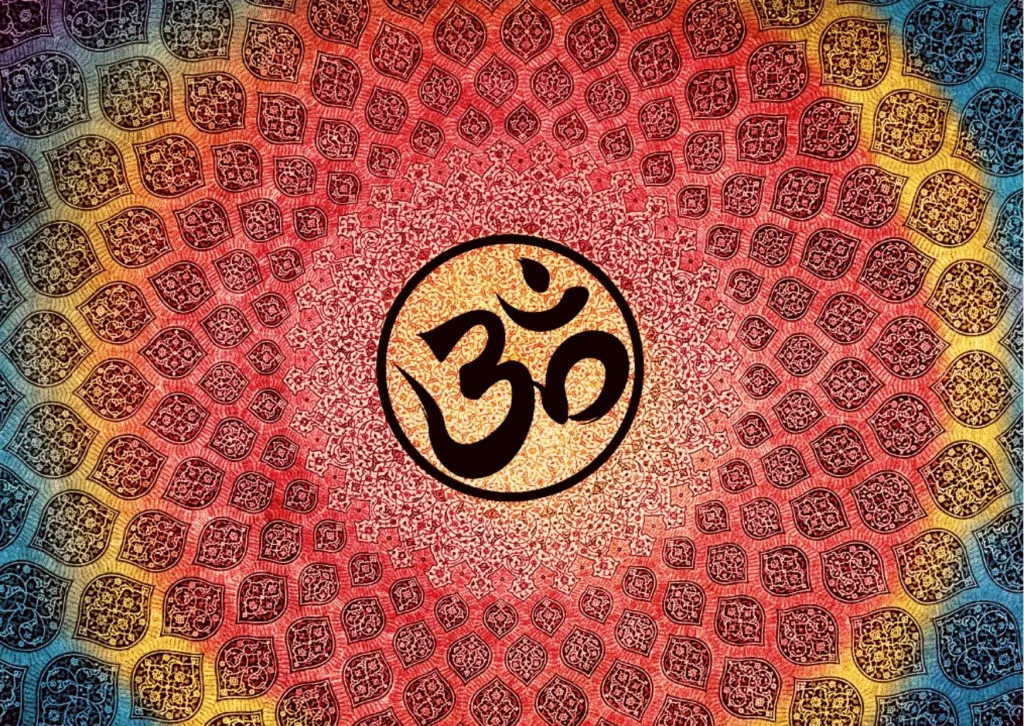
The number 3 here is very important. The door of all knowledge lies hidden within the heart of every soul. Chanting this verse 3 times every day unlocks this treasure chest of knowledge granting insight.
It is worthwhile to note that in a stanza, Pushpadanta utters unique names of Lord Shiva such as Trilochana, Bhav, Shiva, and Pashupati. In verse 32, he presents an exquisite analogy.

If the ocean waters mixes with the blue mountain to create ink, the Parijat tree becomes a pen, the entire earth becomes paper and Devi Saraswati becomes the writer, yet it would be impossible to write the glories of Mahadev. Verse 34-43 is Phalashruti which I have already mentioned in the benefits section.
Please Like the Blog and Share it for Maximum Reach

